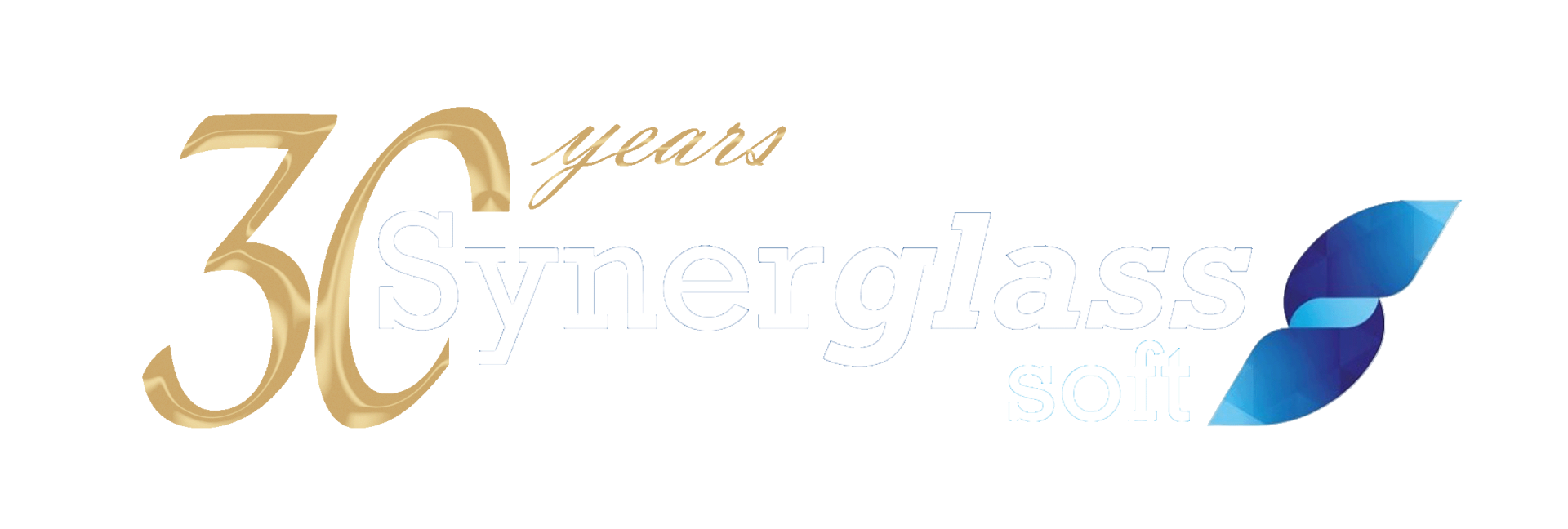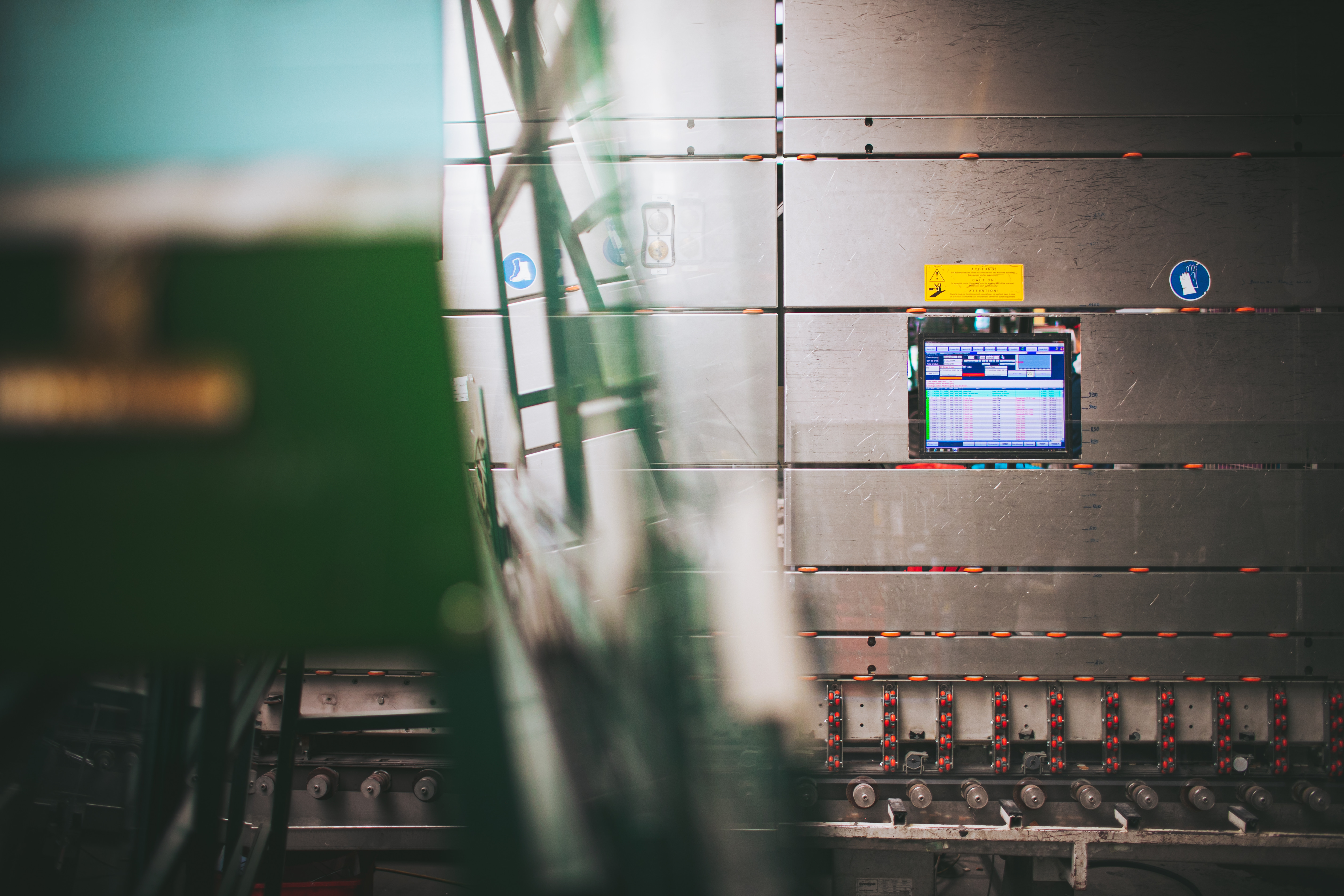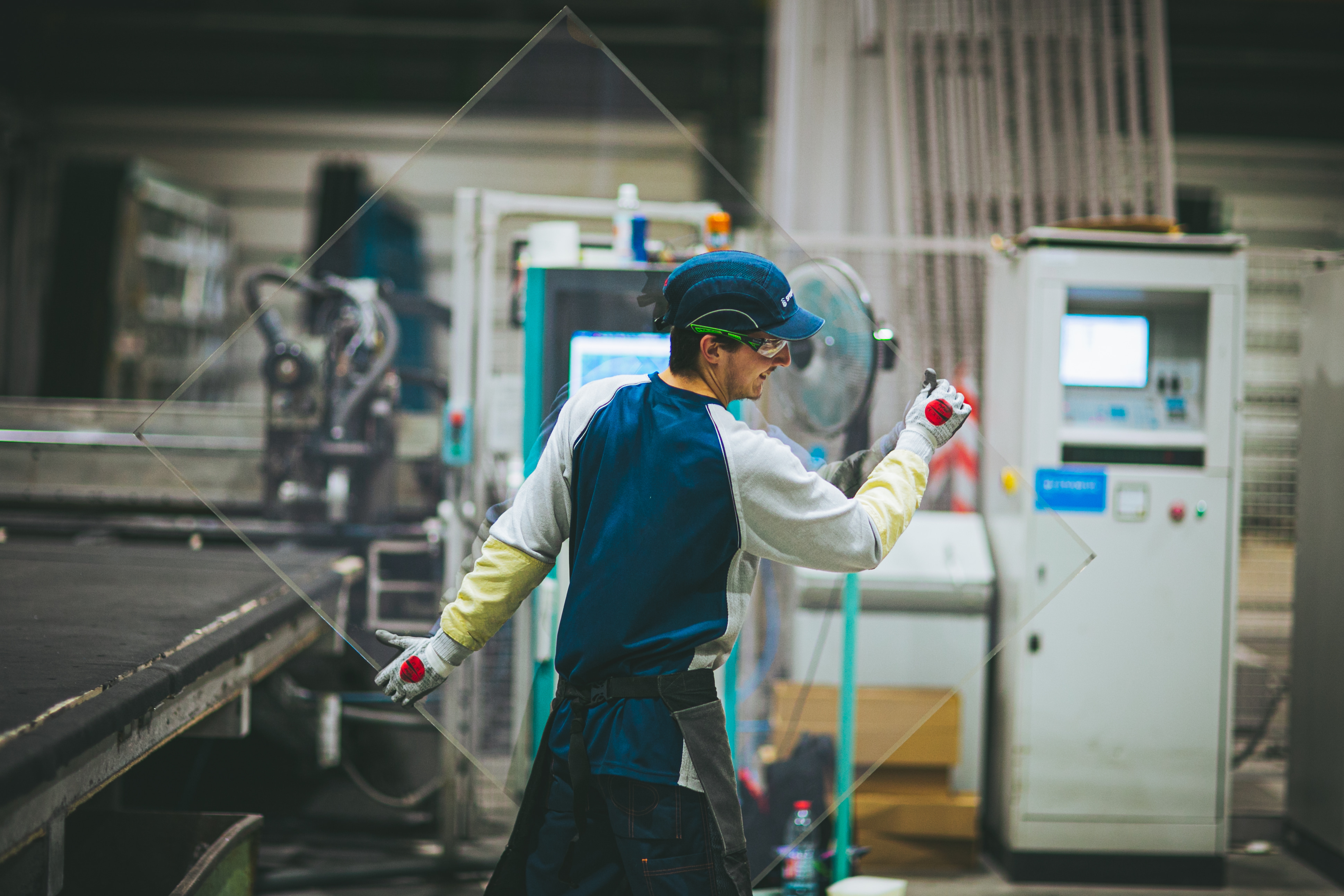- Publication date :
- Author : mkd_admin
Upgrading to an ERP system: Why now?
Like every other area of business technology, ERP systems are evolving rapidly. You have likely seen their benefits in companies similar to yours and are now faced with important questions: ‘Is this the right time to switch from our traditional systems to modern ERP solutions?’ and ‘Can we afford to wait any longer?’
Our Sales Manager at Synerglass-Soft has interacted with numerous small and medium-sized glass processing businesses and consistently hears the same challenge: time. Many of them delay upgrading to an ERP system because they feel they do not have the time for such a significant change.
There are several compelling reasons to upgrade now. In this article, we will review these reasons to help you see their relevance to your business.
By the end, you should have a clear understanding of whether or not adopting an ERP system is crucial for your business right now, depending on your needs. You will then be able to calculate the cost of delaying this decision for yourself, helping you make an informed choice about the future of your operations.
Competitors reap the benefits of modern software features
Technology is constantly evolving and innovations are transforming traditional manufacturing processes.
Modern advantages in ERP solutions lead to significant benefits for companies that adopt them:
- Automated cutting systems: These systems streamline the cutting process, significantly reducing manual setup time and cutting down on labor costs while increasing production speed.
- Precision measuring tools: Advanced tools ensure that your products meet high standards of accuracy, minimizing the need for rework and reinforcing product quality without extending processing time.
- Integrated ERP solutions: By consolidating data entry tasks, these solutions reduce staff time in manual entry, lower error rates, and decrease administrative overhead, leading to more accurate data management.
- Real-time order information: Instant access to order status helps improve customer service, creating a better experience for customers who have questions about their products.
Companies that adopt these modern features gain substantial advantages over competitors, including improved efficiency, superior product quality, and enhanced customer service. Conversely, delaying the switch to these advanced technologies can have significant drawbacks:
- Efficiency: Competitors using automated systems can deliver faster turnaround times, as they have higher efficiency.
- Quality: Having access to precision measuring tools, competitors have better quality for money.
- Errors: Competitors have fewer errors and can intercept errors quicker and better.
It is undeniable that the glass industry is moving in this direction. You want to ask yourself not “What is the right time to move?” but “Can I afford to let my competitors go first?”. To make the right decision, you want to create an extensive business case for a new ERP system.
Strategic decision-making demands accurate data
In today’s competitive landscape, effective decision-making relies on having access to accurate and comprehensive data. ERP systems provide robust data management and analysis tools that could be beneficial for strategic planning:
- Holistic data views: ERP solutions provide a unified view of all business operations, giving you real-time data across various departments. This comprehensive visibility is essential for making informed decisions.
- Advanced reporting tools: Advanced reporting capabilities provide the detailed analysis and forecasting needed to identify trends, optimize processes and make proactive adjustments.
- Real-time insights: Accessing operational data immediately allows you to make decisions faster, enabling you to respond immediately to market changes and internal challenges.
We believe that switching to an ERP system could be a beneficial way to leverage these data management advantages, which could help drive strategic growth and profitability. On the other hand, there are some potential disadvantages to be aware of if the transition to modern data systems is delayed:
- Fragmented Data: Outdated systems lead to fragmented and incomplete data, which limits the ability to make timely and effective decisions.
- Inefficient Processes: Lack of real-time insights makes it difficult to react quickly to market changes, which impacts overall operational efficiency.
- Missed Opportunities: Without comprehensive reporting tools, you may miss critical trends and opportunities, affecting your strategic planning and growth potential.
Accurate data is crucial for strategic decision-making in today’s market. Rather than delaying, consider the competitive disadvantage of not having real-time insights. Implementing an ERP system will ensure your decisions are always informed and timely, giving you a strategic edge.
Industry standards require a higher level of compliance
In the glass industry, it is critical to comply with a wide range of standards and regulations. From international standards to national regulations, maintaining compliance can be quite challenging. Specific production processes like insulating glass (IG), laminated glass, or tempered glass can add layers of complexity to compliance management.
Modern ERP systems are designed to handle these complexities efficiently by automating compliance monitoring. This helps to ensure that you meet regulatory requirements accurately and stay updated with changing standards. We have highlighted below some of the key contexts in which you may be interested in considering an upgrade:
- Automated compliance tracking: ERP systems ensure compliance is managed effectively, minimizing the risk of errors and preventing penalties associated with it.
- Adaptation to new standards: It integrates new regulatory requirements quickly and keep your business compliant with evolving regulations.
- Efficient process management: It automates routine compliance tasks, freeing up time and resources for other critical activities.
On the other hand, there are some potential disadvantages to postponing the transition to an integrated system:
- Regulatory risks: Manual compliance management increases the likelihood of errors and regulatory fines, which can affect your business’s reputation and financial health.
- Operational inefficiencies: Without automated compliance monitoring, your team is likely to be faced with tedious processes, which can have an impact on overall efficiency.
- Difficulty adapting: Outdated systems may not accommodate new regulations, leaving you vulnerable to compliance issues.
Compliance is non-negotiable in the glass industry, with standards constantly evolving. The focus should be on how quickly you can adapt to these changes compared to your competitors. Upgrading to an integrated system will help you streamline your compliance processes and protect your company from costly fines.
Customers demand quicker responses and customized communication
We should all be aware that today’s customers have certain expectations of the service they receive. They want to be able to get quick responses, have perzonalised interactions and have seamless experiences. In the glass industry, this expectation can be met by implementing efficient order management, offering customization options, and maintaining consistent product quality.
Modern ERP systems are designed to address these needs effectively by:
- Enhancing customer relationship management: It consolidates customer data, improving interaction quality and enabling personalized service.
- Automated customer service: Automation ensures consistent, high-quality service. Real-time order tracking provides immediate access to order status and details, facilitating rapid response to customer requests and proactive problem resolution.
We have learned from experience that adopting ERP technology can help you meet and exceed customer expectations, which in turn can strengthen customer loyalty and satisfaction. On the other hand, it is worth bearing in mind that there can be some disadvantages to delaying the adoption of such systems:
- Poor customer experience: Without real-time updates and streamlined service, customer satisfaction may decline.
- Reduced responsiveness: Inefficient order management and communication can affect your ability to respond quickly to customer needs.
- Loss of competitive edge: Competitors using ERP systems to deliver superior service may attract your customers, which could impact your market share.
Customer expectations are higher than ever. We have seen that many companies have been able to benefit from upgrading to an ERP system regarding customers demands and communication. It is therefore important to think about how enhanced customer service can set you apart. An ERP system can help meet these demands, and creating a business case will show how this upgrade can enhance customer loyalty.
Operational costs need to stay in control
While the initial investment in an ERP system may appear considerable, the long-term savings and efficiency improvements it can bring are significant. We would like to suggest a few ways in which modern ERP systems might help to reduce costs:
- Reduced manual work: It has the potential to automate repetitive tasks, which help reduce labor costs and minimize errors.
- Optimized resource allocation: It enhances resource and workforce management, ensuring smooth and efficient operations.
- Streamlined processes: It offers the potential to integrate various business functions, which would help to reduce any redundant tasks and operational waste.
Upgrading to modern systems enables you to start realizing these savings sooner, which can improve your bottom line and allow to deliver a quicker return on investment. Conversely, delaying the upgrade can have some drawbacks:
- Higher operational costs: Outdated systems may result in continued higher costs due to inefficiencies and manual processes.
- Missed savings opportunities: To continue using legacy systems can mean missing out on the efficiency gains and cost reductions offered by modern ERP solutions.
- Inefficient scaling: The lack of scalability in old systems could present a challenge to your ability to expand operations cost-effectively.
The financial benefits of upgrading to an ERP system are significant. Instead of questioning when to save costs, think about the efficiency gains you could make that would improve your bottom line.
Systems should enable your growth, not hinder it
As your business grows, so do your requirements. Outdated systems often fail to scale effectively, leading to inefficiencies and operational bottlenecks.
Modern ERP systems are designed to accommodate growth by:
- Scalable infrastructure: It is designed to adapt to increasing demands and operational complexity in a way that is unlikely to disrupt your business.
- Flexible features: It offers expandable features that evolve with your business needs, in order to help you maintain efficiency.
- Future-proofing: It prepares your business for future expansion, allowing you to anticipate it.
Conversely, delaying the switch to an ERP system can have some drawbacks:
- Operational bottlenecks: Old systems may not handle increased demands efficiently, leading to slowdowns and inefficiencies.
- Limited growth potential: Inability to scale effectively can restrict your business’s growth and limit new opportunities.
- Increased disruptions: Not upgrading can result in operational disruptions as your business expands, which could affect the overall performance of your company.
As your business grows, scalability becomes critical. It is essential to consider how outdated systems could hinder your growth compared to competitors using modern ERP solutions. Adopting an ERP system now will ensure your business is ready to scale efficiently and effectively, supporting sustainable growth.
You want to take the first exploration step now
The article above outlines the reasons companies consider an ERP upgrade. We hope these reasons can help you decide when to upgrade your ERP.
To determine if it is the right time for your business to make this transition, conducting a software gap analysis combined with a business case evaluation is crucial. This process will provide you with the insights and confidence needed to make an informed decision tailored to your specific needs.
To explore how an ERP system can transform your operations, make sure to reach out to us at sales@synerglass-soft.com. Alternatively, use our ERP checklist to identify key areas for improvement on your own.
We are here to keep you on top of your game and help you to have a healthy business.



